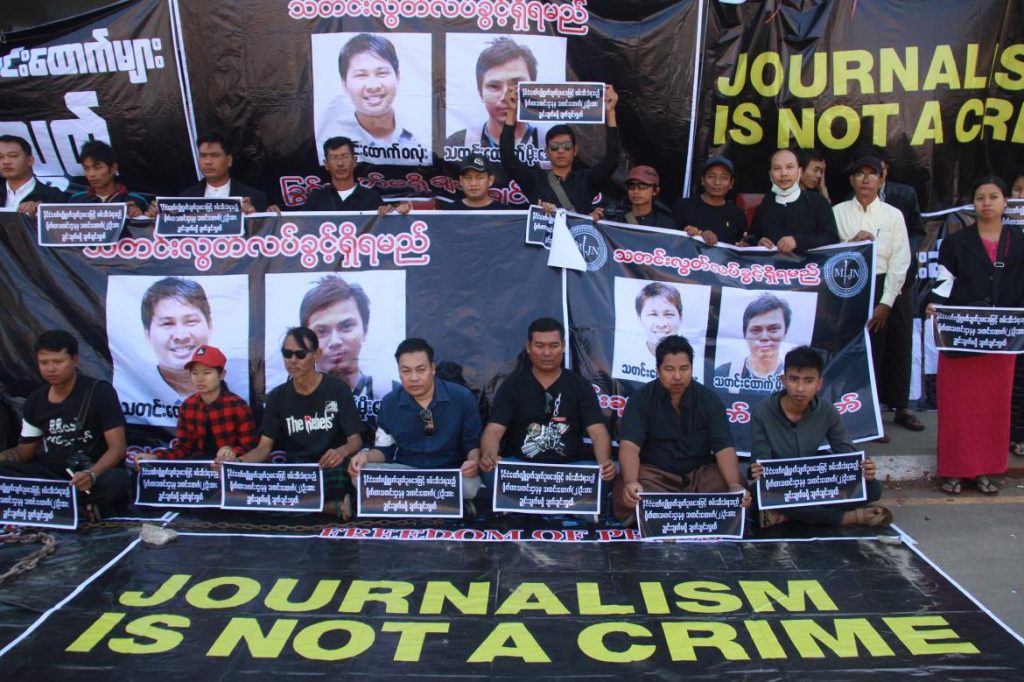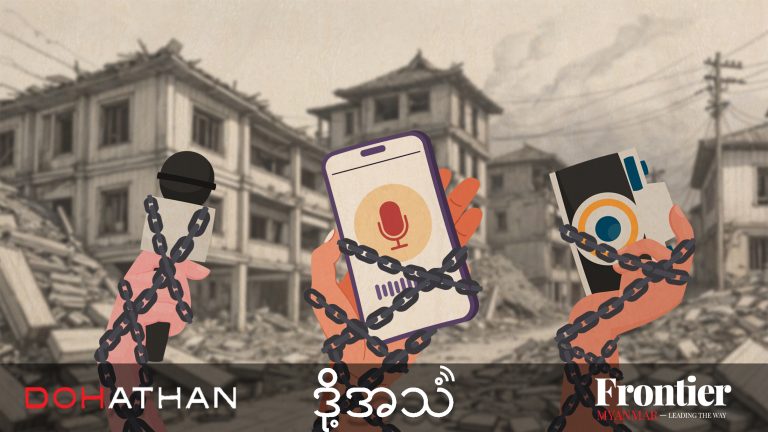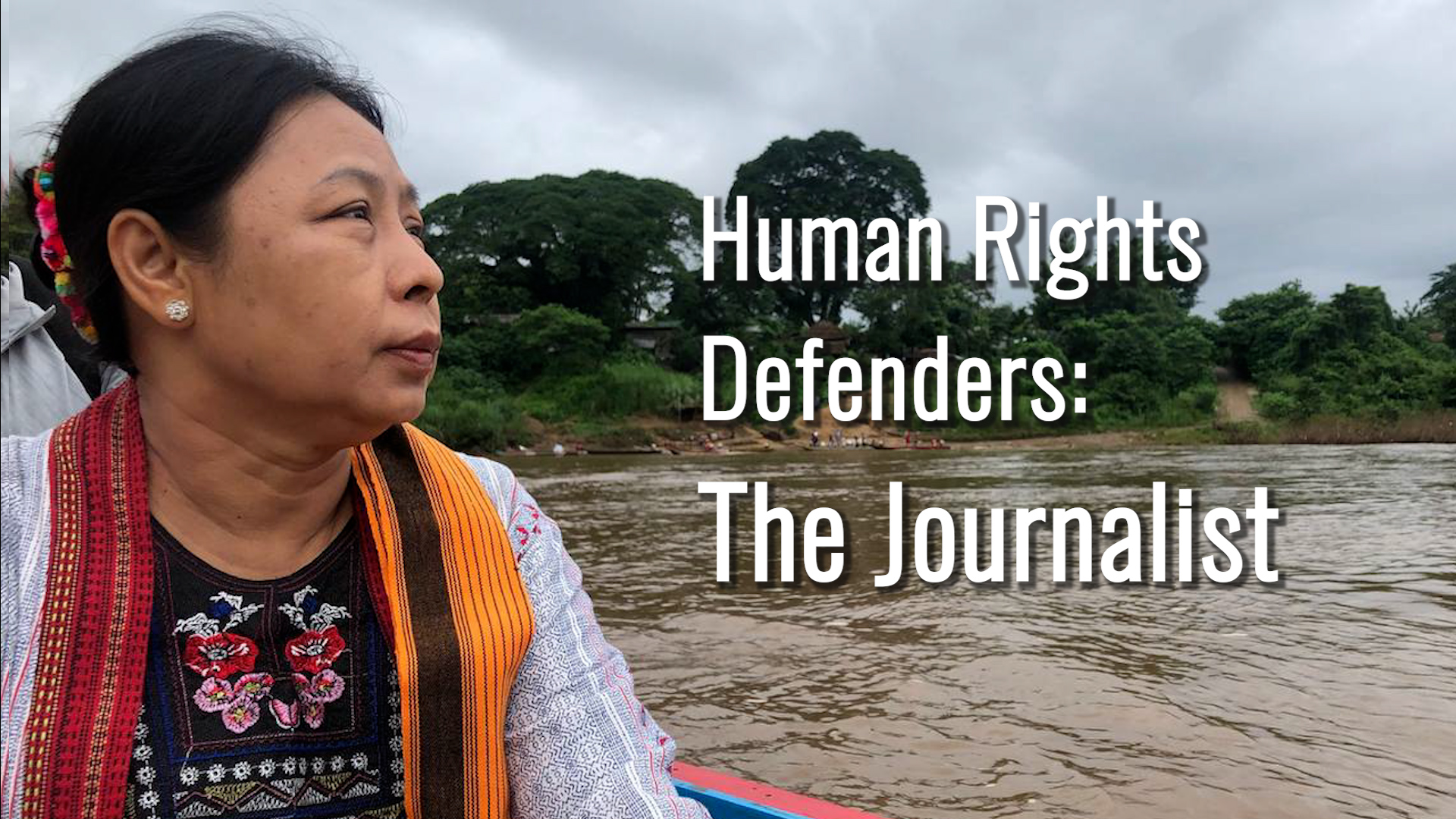Testimony at a court hearing has fuelled speculation the reporters are victims of entrapment.
By SITHU AUNG MYINT | FRONTIER
THE FIRST hearing in the case against two Reuters reporters arrested under the colonial-era Official Secrets Act took place at Yangon’s Northern District Court on January 23. Ko Wa Lone, 31, and Ko Kyaw Soe Oo, 27, were arrested in curious circumstances on December 12 soon after meeting police officers for dinner in northern Yangon.
The case that has attracted huge domestic and international attention. Officials in the United States, Britain, Canada and other countries, as well as top United Nations officials, have called for the pair to be released amid speculation they may be victims of entrapment. The US embassy in Yangon said their arrests were “highly irregular”. The maximum penalty for a conviction under the Official Secrets Act is 14 years’ imprisonment and the court will decide if the two journalists are guilty or innocent.
A leaked police report about the arrests was published in the media on December 13. It said that on the night of December 12, a patrol headed by Police Lieutenant-Colonel Zaw Naing was on duty at the corner of No 3 Main Road and Nilar Street in Mingaladon Township. The patrol saw the two men walking on the road and stopped them for a check. Documents found on the men allegedly included information about a police unit at Maungdaw District, Rakhine State, and a report on the status of Muslim villages following the military crackdown after the Arakan Rohingya Salvation Army attacks on August 25. The reporters were taken to Htaukkyant Police Station and arrested under section 3.1 of the Official Secrets Acts for possessing official documents.
In a statement on its Facebook page on December 13, the Ministry of Home Affairs said the two reporters had been arrested because they were in possession of police documents about the security situation in Rakhine. It said they were given the documents by two police officers who had recently returned to Yangon from duty in Rakhine and had also been arrested. The reporters “illegally acquired information with the intention to share it with foreign media,” said the statement, which was accompanied by a photo of the Reuters pair in handcuffs.
Support more independent journalism like this. Sign up to be a Frontier member.
However, this contradicts other accounts. According to media reports, at about 10pm on December 12, the Reuters bureau chief in Yangon, Mr Antoni Slodkowski, called Mingaladon Police Station to report the two journalists missing.
The reports said that Wa Lone and Kyaw Soe Oo travelled to the meeting with the two policemen, named as Police Captain Moe Yan Naing and Police Sergeant Khin Maung Lin, in a Reuters car with a driver. They met at the gate of Mingaladon No 8 police station and went to Saung Yeik Mon restaurant, with the reporters taking their car and the police officers travelling by motorbike. The two reporters were dropped at the restaurant and the driver adjourned to a teashop to wait for them to call after they finished eating. The call never came and the driver alerted the Reuters bureau.
It is significant that the reporters went to Mingaladon because the police invited them. The decision to dine at the Saung Yeik Mon restaurant is believed to have been made by the policemen, not the reporters. It is most unlikely that the reporters approached the policemen and persuaded them to hand over the documents, as claimed by the Ministry of Home Affairs. There is nothing unusual about reporters arranging to meet people and receiving information from them. It’s part of their job.
Another disturbing aspect of the case is the difference between the police report account of the reporters’ arrests and what Wa Lone has told the media via his family. Wa Lone said they were arrested as soon as they left the restaurant. At the court hearing on December 23, the first prosecution witness, Police Lieutenant-Colonel Yu Naing, testified that documents tendered as exhibits were seized at the entrance of the restaurant, which would appear to support Wa Lone’s version of events. The discrepancy between the police report and the court testimony has added to suspicions that the case is a set up.
It’s also very curious that images of the two policemen said to have been arrested with Wa Lone and Kyaw Soe Oo have never been released.
Entrapment is not uncommon in the Myanmar Police Force. It is known that unscrupulous police sometimes resort to it to arrest women for prostitution. They do this by giving a man marked cash notes that are later seized from the woman and used as evidence against her.
There is yet another unusual element about the reporters’ case. The Myanmar Police Force sought permission from the office of President U Htin Kyaw to charge the pair under the Official Secrets Act within an hour of their arrests, said defence lawyer U Than Zaw Aung, referring to Yu Naing’s court testimony on December 23.
The authorisation was issued on December 13, and another defence lawyer, U Khin Maung Zaw, was quoted by Reuters as saying such speed was unusual. Such authorisations would typically be sought about a week into an investigation, he said.
The arrest of the Reuters reporters is not normal. A few days after their arrest, a leading member of the National League for Democracy, U Win Htein, speculated that they had been “caught in a trap”. He might be right.







